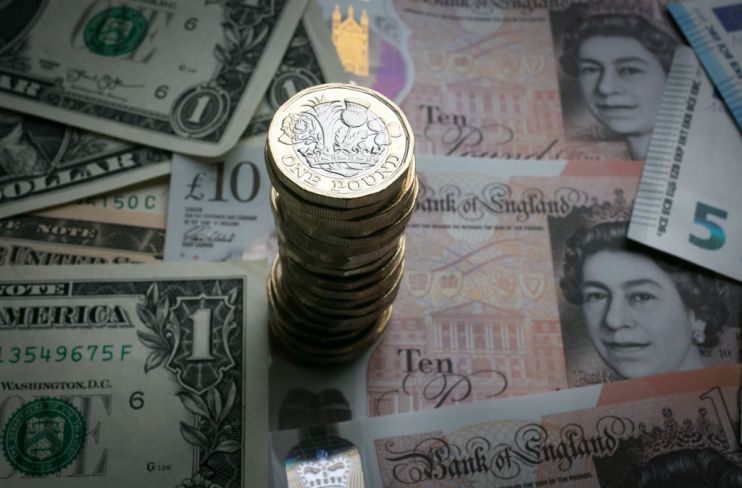IMF “monitoring developments” in UK after currency fall and mini-budget

The International Monetary Fund gave Kwasi Kwarteng and Liz Truss a slap on the wrist this evening, with a spokesman saying it did not “recommend large and untargeted fiscal packages” amid inflation concerns.
The warning from the IMF comes after another day of currency fluctuations, triggered by a so-called ‘mini budget’ of tax cuts announced by Chancellor Kwarteng on Friday of last week.
The pound whipsawed against the US dollar today, shedding early gains to eventually weaken against the greenback in early evening trading.
Sterling had initially strengthened 1.04 per cent to $1.0795 during early exchanges in the City. But, it tipped into the red in the early evening.
The currency is still trading at a multi-decade low against the dollar and has shed around 20 per cent since the beginning of the year.
Against the euro, the pound also gained ground early on, before fizzling out to add around 0.2 per cent.
Sterling is still down over six per cent against the currency used by the 19 countries that make up the eurozone so far this year.
Yields on the UK government debt started the day lower, but surged after the Bank of England’s chief economist Huw Pill said the recent market turmoil will require a “significant” response at the next monetary policy committee meeting on 3 November.
That likely means a rate hike of as much as 100 basis points and opens the door for further steep rises heading into 2023. Markets think borrowing will top six per cent next year.
Rates on 30-year UK gilt breached five per cent for the time since 2002 today. Yields and prices move inversely. Yields on the 2-year UK gilt dropped.
Chancellor Kwasi Kwarteng today met with executives at City behemoths JP Morgan and Aviva, among others.
The meeting was initially intended to discuss regulation of the financial services sector. He instead sought to soothe executives’ concerns over the market turmoil
Kwarteng told them that “we are confident in our long-term strategy to drive economic growth through tax cuts and supply side reform”, and that he will next month unveil a “credible plan to get debt to GDP falling”.
According to Bloomberg, UK assets have shed $500bn since Liz Truss became prime minister earlier this month.
Pound/USD exchange rate

Earlier this week, sterling tumbled to a record low of nearly $1.03 in overnight trading in Asia.
The pound then whipsawed during trading in Europe and the US, at one point rising against the dollar.
However, it eventually closed the day 1.5 per cent lower, driven by traders ditching the currency after the Bank of England rolled back against the City’s expectation that it would launch an emergency rate hike to curb the pound’s losses.
Governor Andrew Bailey was forced to intervene to calm the currency, stressing the Bank would “not hesitate” to lift borrowing costs as far as necessary to return inflation, running at a 40-year high of 9.9 per cent, back to the Bank’s two per cent target.
Chancellor Kwasi Kwarteng also tried to reassure markets by confirming he would set out more details on his plan for the economy on 23 November.
The Office for Budget Responsibility (OBR) will publish forecasts on the economy on the same day, the Treasury said.
The government did not ask the OBR to release forecasts to accompany last week’s mini-budget, despite the organisation reportedly saying it could do so.
Traders are assigning a 43 per cent chance the pound will hit parity with the dollar this year.